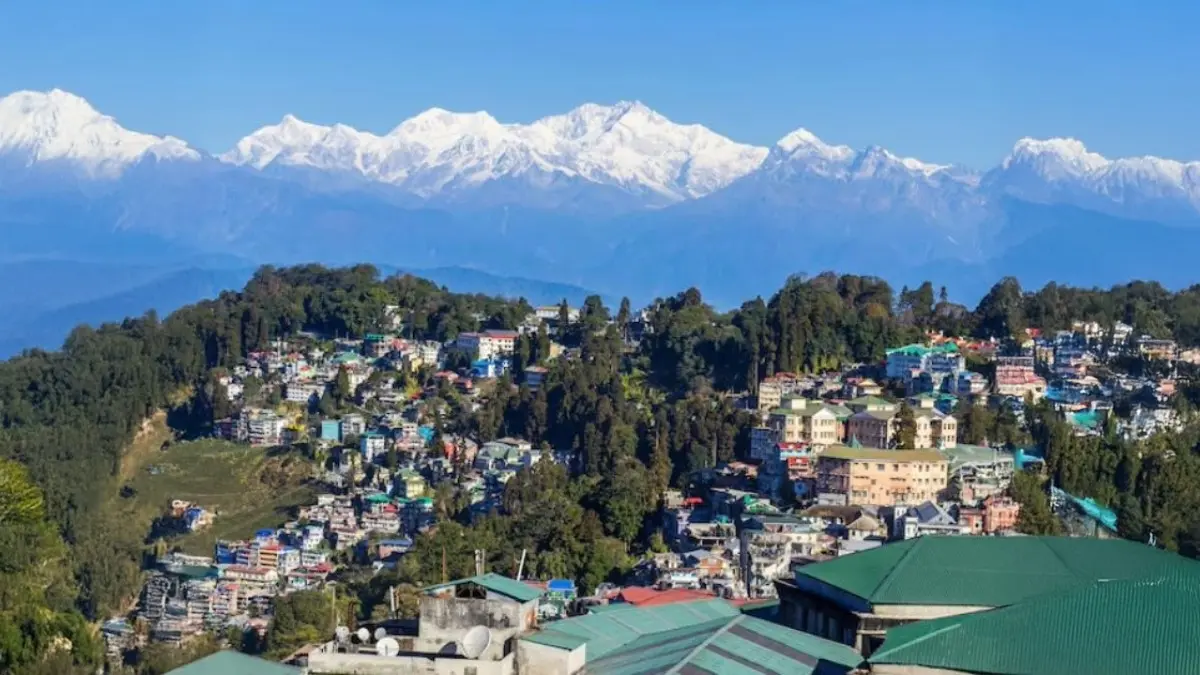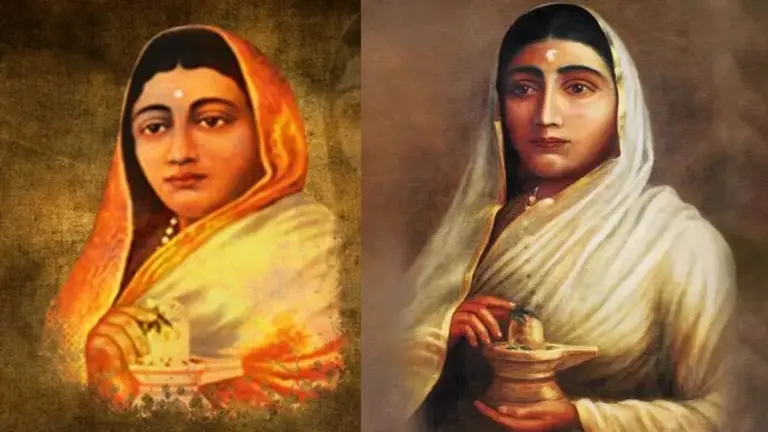Table of Contents
True Meaning of Kashmir: Whenever the word Kashmir falls in the ears, the first thing that comes to mind is its beautiful valleys, snow-capped peaks and lakes, but have you ever wondered how deep the roots of this name are buried? The history of Kashmir is not limited to stories of wars and politics, but its identity and naming (True Meaning of Kashmir) is equally mysterious and interesting.
- Kashmir is very famous all over the world for its enchanting natural beauty.
- Its historical name was Kashyapmar, which over time changed to Kashmir.
- Descriptions of foreign travellers also help in understanding Kashmir better.
Kashmir is not just a piece of land, but a name wrapped in layers of history, folklore and culture, which reveals countless stories as you delve deeper into it. This area, once called ‘heaven on earth’, is still known for its beauty, but the origin of its name (Kashmir Name Origin) and history are equally interesting. Let’s find out.
Unraveling the Age-old Folklore and True Meaning of Kashmir
The word Kashmir has its roots in an old folktale. It is said that this valley came into existence by drying up a huge lake. Yes, a thousand-year-old folktale says that Kashmir was once a huge lake. No human being lived here, there was only water. Then came Maharishi Kashyap, who cut the hills of Baramulla and drained out the water of that lake, which created a land suitable for human habitation here, which was so beautiful that it came to be known as “heaven on earth”. This land later became “Kashyapamar”, then “Kashmir” and finally today’s “Kashmir”.
The story of this lake and sage Kashyap is also mentioned in the book Rajtarangini by 12th century historian Kalhan. True Meaning of Kashmir This was the first time that Kashmir was historically recorded in any Indian text. This is also mentioned on the website of the Planning Development and Monitoring Department of the Government of Jammu and Kashmir.
What is the True Meaning of Kashmir?
In Sanskrit, “Ka” means water and “Shamira” means to dry up. According to this, the literal True Meaning of Kashmir‘ is – “dried up water” i.e. a land that has come out of water.According to another view, ‘Kas’ means canal or stream and ‘Mir’ means mountain. By this interpretation Kashmir means – “the land of water streams flowing between the mountains”.
Kashmir in ancient texts and foreign documents
Kashmir has been a centre of attraction for scholars and travellers not only from India but from all over the world. In 550 BC, the Greek historian Hecataeus called this region ‘Kaspapyros’. Subsequently, the Roman astronomer Ptolemy (150 AD) called it ‘Casperia’, although he exaggerated its boundaries.Kashmir is also mentioned in Chinese records – it was called ‘Ki-pin’ and during the Tang Dynasty it was called ‘Kia-shi-mi-lo’. This mention is present in documents of the 7th and 8th centuries.
Kashmir seen through the eyes of Alberuni
The 11th century Khwarazmi scholar Alberuni, who is also called the first anthropologist of India, has made a special mention of Kashmir in Kitab-ul-Hind. He did an in-depth analysis of the geographical structure as well as language, society, religion and culture here.According to him, Kashmir is a mountainous region between Central Asia and the plains of Punjab – extremely rich in both culture and nature.w
Recognition spread to distant lands
You Must Have Seen Many Flies Rubbing Against Feet, But Do You Know The Reason Behind Their Behavior?The 13th century Italian traveller Marco Polo also mentioned Kashmir. He called it ‘Kashimur’ and called its residents ‘Kashmirians’. It is clear from his writings that the identity of Kashmir had reached far off countries even at that time.A very interesting and debatable theory has been presented by Prof. Fida Hasnain. According to him, the roots of the Kashmiri people can be traced to a Jewish community called ‘Kas’ settled near Baghdad. This community gradually crossed the Hindukush via Afghanistan and reached Kashmir and settled here.
According to this theory, this caste first settled a settlement called ‘Kashmor’ and then ‘Kashtwar’ and finally ‘Kashmir’ was formed. Although this theory is not widely accepted yet, it does show another aspect of Kashmir’s diverse identity.
Role of King Jambulochan
Many locals believe that Kashmir got its name during the reign of King Jambulochan who ruled the region in the 9th century. The cities and administrative system he founded gave Kashmir a cultural framework and this was probably the time when the region started being called ‘Kashmir’.
Kashmir is no ordinary name. It is a word that is a confluence of history, language, geography, folklore and culture. Every interpretation, whether it is of the sage Kashyap, foreign travellers or the Jewish link, adds more depth to the identity of Kashmir.As beautiful as the valleys here are, its story is equally mysterious and perhaps that is why Kashmir is not just a place, it is a feeling, which requires both heart and mind to understand.
(Disclaimer: The information given here is based on general information. Before adopting it, definitely take medical advice. THE MONK does not confirm this.)































